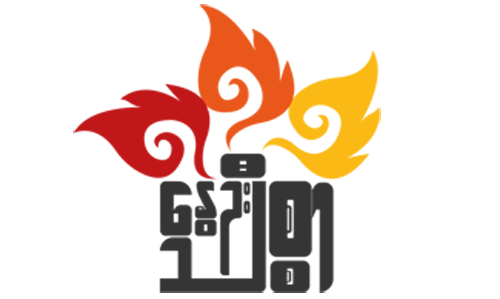MoeMaKa, February 16 2023
Aung San Suu Kyi’s corruption appeal was rejected by the military council’s court; The impact of reduced rice yields

According to news reports, among the cases where Daw Aung San Suu Kyi was charged and sentenced, her lawyers presented the appeal for 2 corruption cases to the Supreme Court, in which entrepreneur U Maung Weik gave dollars and gold bars as a donation to the Daw Khin Kyi Foundation, but the Union Supreme Court rejected it. It is not surprising that the Union Supreme Court rejected it. All courts, including lower-level courts, high courts of the region and state, and the Union Court, which is now called the Union Supreme Court, do not judge independently. As they were sentencing the cases according to the military’s instructions, the appeal for cases sentenced to Daw Aung San Suu Kyi was easily rejected. They already have the intention of defaming Daw Aung San Suu Kyi by charging her with corruption, which is why the appeal was rejected.
Aung San Suu Kyi and Win Myint were also jointly charged in the case of purchasing helicopters, which was sentenced and is still being appealed. These appeals also have a lot of potential to be rejected, like the current case. Actually, there are assumptions that Daw Aung San Suu Kyi and U Win Myint should not file an appeal against the prosecution and punishment. On the other hand, there are opinions that it would be better to ignore these orders and punishments because it is impossible to expect the judicial system under the military council to be fair and independent. I think it is more appropriate, from a politician’s point of view, not to take into account the judgment of the military council and ignore it.
Another news item for today is that after the widespread armed conflict in Myanmar, agricultural production has decreased significantly and the price of rice has risen to an unprecedented level.
Due to the significant increase in the price of imports, such as fertilizers, pesticides, etc., and the increase in the price of fuel, in addition to the impact of the depreciation, the price of agricultural products will also have to be raised.
Last year, the price of 100 rice tins was around 10 lakhs and this year, it has increased from 13-14 lakhs to 18 lakhs. This is the first time that prices have reached this level, and this increase in the price of rice means that the common people of Myanmar, who consider rice as their main food, will have to spend more money on rice in a situation where their income is already insufficient.
Due to the fact that Myanmar mainly produces agricultural products, it is less likely to face a famine, but for families with low incomes, in this situation, a large percentage of their income will have to be spent on rice. We are now hearing about instances where people are unable to grow enough food for their families in areas of armed conflict whereas people used to be able to cultivate their own food.
It is also a situation where food insufficiency and poverty will deepen. It is true that the rise in the price of rice can be profitable for the farmers, but the depreciation of money after the military coup and the excessive increase in the price of imported soil after the start of the war in Ukraine do not mean that the farmers are more profitable than before. And for those who are not rice farmers, they have to face the difficulties of buying and eating at a high price.
Therefore, the rise in the price of rice may be an attraction for farmers, but there is a perception that due to price volatility, producers won’t benefit as much from the market as they could, which will only be advantageous for export businesses and rice traders.


